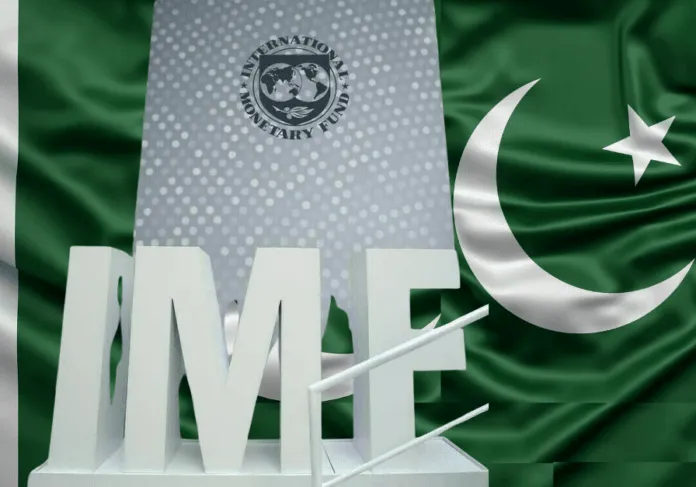The International Monetary Fund (IMF) has established crucial fiscal targets for Pakistan as part of its $7 billion, 37-month Extended Fund Facility (EFF). This initiative aims to stabilize the economy through essential fiscal reforms and promote sustainable growth.
For fiscal year 2025, the IMF projects a GDP growth of 3.2 percent and a decline in inflation to 9.2 percent, indicating a significant recovery for the nation. Recently, the IMF’s executive board approved the extended arrangement, paving the way for Pakistan to receive over $1.027 billion as the first tranche of the bailout package.
According to IMF estimates, Pakistan’s economy is expected to recover steadily in FY2025, with real GDP growth increasing from 2.4 percent in FY2024 to 3.2 percent. This growth is vital for a country of 236 million, where per capita GDP stands at $1,572 as of FY2024.
Inflation has been a pressing issue in recent times, but the IMF forecasts average consumer price inflation will drop from 23.4 percent in FY2024 to 9.5 percent in FY2025. This easing has enabled the State Bank of Pakistan (SBP) to reduce its policy rate by 450 basis points since June 2024.
The IMF also anticipates the unemployment rate, currently at 8 percent for FY2024, will gradually decrease to 7.5 percent by FY2025. Strong fiscal reforms are essential for ensuring long-term sustainability, with government revenue projected to rise from 12.6 percent of GDP in FY2024 to 15.4 percent in FY2025.
The fiscal deficit, including grants, is expected to narrow from 6.7 percent to 6.0 percent of GDP during the same period, with a projected deficit of 6.1 percent of GDP for FY2025 excluding grants.
Notably, Pakistan’s primary balance (excluding grants) is expected to shift from a surplus of 0.9 percent of GDP in FY2024 to 2 percent in FY2025, marking a substantial turnaround from the 0.9 percent deficit observed in FY2023.
Public debt, which was 74.9 percent of GDP (excluding IMF obligations) in FY2023, has decreased to 67 percent in FY2024 and is projected to rise slightly to 69 percent in FY2025. Meanwhile, external debt has dropped from 28.6 percent of GDP in FY2023 to 22.6 percent in FY2024, with a forecasted increase to 24 percent in FY2025.
Pakistan’s current account deficit is expected to widen again to 0.9 percent by FY2025 after shrinking from 1.0 percent in FY2023 to 0.2 percent in FY2024. Foreign direct investment (FDI) is forecast to decline slightly to 0.4 percent of GDP in FY2025, down from 0.5 percent in FY2024.
The IMF anticipates significant improvements in foreign exchange reserves, projected to rise from $9.38 billion in FY2024 to $12.76 billion by FY2025, which would cover 2.1 months of imports by the end of FY2025.
Energy sector reforms remain vital within the EFF program. The IMF calls for deeper cost-cutting measures and energy tariff adjustments to mitigate circular debt and ensure the energy sector’s long-term viability. Alongside these reforms, the restructuring of state-owned enterprises (SOEs) is crucial for enhancing efficiency and service provision in public utilities.
Despite these short-term improvements, Pakistan faces deep structural challenges, including a challenging business environment and weak governance. The IMF stresses the need for broader tax reforms, advocating for the elimination of sector-specific exemptions and the inclusion of underrepresented sectors, such as large-scale agriculture, industrialists, and developers, in the tax net.
Additionally, the program emphasizes the importance of building resilience to climate change through sustainable investments and improved infrastructure. Strengthening anti-corruption frameworks and governance reforms will be essential for fostering a more competitive economy.
In its ongoing efforts, the IMF has urged Pakistan to enhance its tax base and reinforce federal-provincial fiscal arrangements. Ensuring fiscal sustainability through robust macroeconomic policies is deemed crucial for fostering long-term economic growth and stability.


